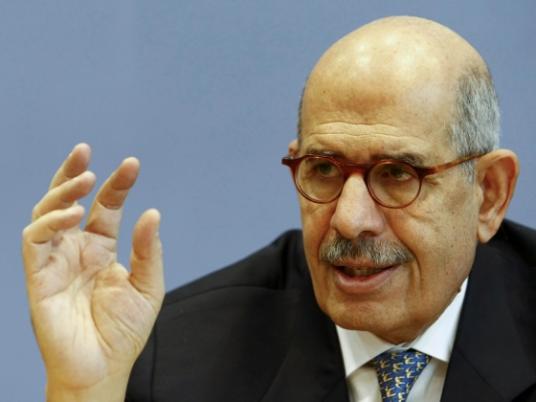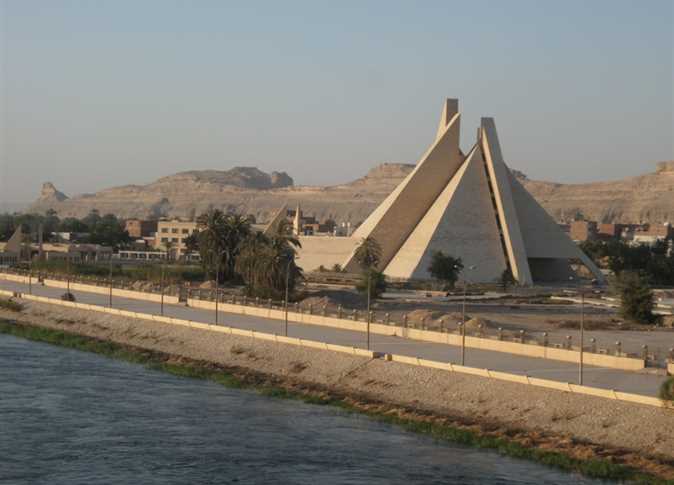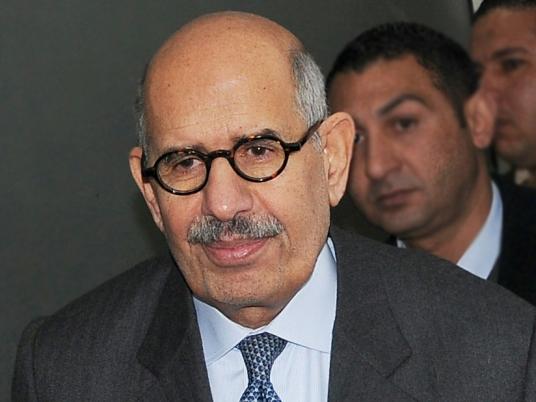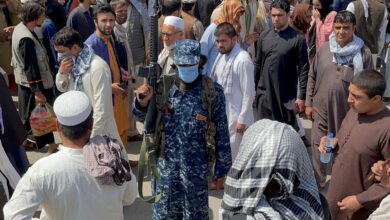
Nobel Peace Prize winner Mohamed ElBaradei's decision to quit the race for the presidency has been seen in Egypt as a slap in the face for military rulers and one depriving liberals of a key force.
The ex-UN nuclear watchdog chief made the surprise announcement on Saturday, days before Egypt is set to celebrate the first anniversary of the January 25 uprising that ousted president Hosni Mubarak.
"My conscience does not allow me to run for the presidency or any other official position unless there is real democracy," ElBaradei said in a statement.
He charged that old regime figures still ruled the country, accused them of repressive tactics and criticised what he said were "botched" moves to draw up a constitution after the election of a new president later this year.
The banner headline in the government daily Al-Akhbar compared ElBaradei's decision to a "bomb," while the independent Al-Shorouk and Al-Masry Al-Youm papers said it targeted the ruling Supreme Council of the Armed Forces (SCAF).
"ElBaradei has stripped bare the former regime and withdraws from the presidency," Al-Shorouk said in a banner headline. Al-Masry Al-Youm said: "The ElBaradei bomb explodes in the face of the military."
The SCAF has repeatedly pledged to cede full powers to civilian rule when a president is elected by the end of June, but there is widespread belief that the military wants to maintain a political role in the future.
The military has also come under fire over its human rights record and faced accusations that it has resorted to Mubarak-era tactics to stifle dissent.
Presidential hopefuls like former Arab League chief Amr Moussa and opposition figures like Ayman Nour lamented ElBaradei's decision, with some fearing that it could destroy the aspirations of liberals to reform Egypt.
Moussa, one of ten contenders for the presidency, expressed confidence that ElBaradei "will pursue his efforts to rebuild the country."
Nour, who challenged Mubarak in the 2005 election, and who still eyes the presidency, despite spending time in jail, praised ElBaradei as "the president of the Egyptian conscience," media reported.
His departure is a "kiss of life to the revolution," Nour was quoted as saying.
The liberal-minded ElBaradei was initially hailed as a hero upon his return to Egypt in February 2010 at the end of his tenure as the International Atomic Energy Agency's chief, and many Egyptians saw in him as an ideal candidate to steer the most populous Arab country into democracy.
While some said he was out of touch with reality and failed to stand up to the regime, liberal voices cast his withdrawal from the presidential race as a noble move.
"Despite all the pressure, the criticism and the accusations [he faced], ElBaradei refused to join any party or to run for the presidency under the Mubarak regime. This man is a real revolutionary," columnist Naglaa Bdeir wrote in Al-Tahrir newspaper.
The Nobel laureate's decision could re-energize the revolution, said Mahmoud Afifi of the April 6 Youth Movement. "ElBaradei is not just an individual but embodies an ideology in which many believe," the state-run MENA news agency quoted Afifi as saying.
Some Islamists, however, argued that Egypt's most prominent liberal stood down because of the crushing victory of the Muslim Brotherhood's Freedom and Justice Party in recent parliamentary elections.
"He did well by pulling out. He knows he wasn't welcome by Islamist groups, and most of the people support the choices of the Islamists," Mohamed Hassan Hammad, a Jama'a al-Islamiya spokesman, told Al-Masry Al-Youm newspaper.
Mohamed Radwan of the Salafi ultra-conservative Nour Party, is quoted by the paper as saying: "ElBaradei quit because he saw that the Egyptian people voted for Islamists in the election."
The Freedom and Justice Party's spokesman told AFP that ElBaradei's move "is his personal decision."




